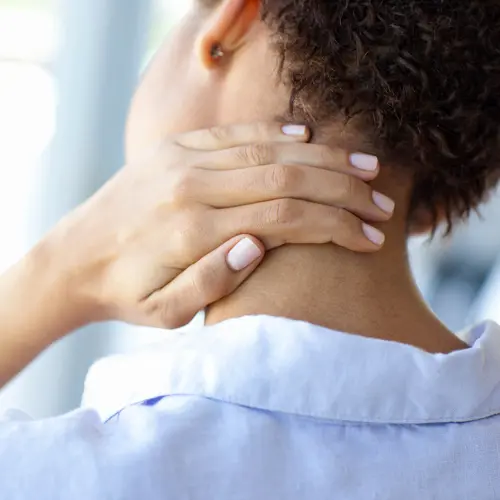My journey with AS started in my mid-20s. I felt tingling and pain and I felt tired a lot. It took a while for me to figure out what was going on, but in the end, I’m thankful that I got my diagnosis only about a year after I started feeling that pain.
But then I had to accept it, which honestly took a few years. Then, I had to figure out what to do with it. And that’s a very difficult question to answer, mostly because the answer changes all the time. Finding my way around living with AS doesn’t mean that I’m not disabled, and it doesn’t mean that I have everything I need.
I’m a type A personality in a type Z body.
What doesn’t change is that the start of each day is tough. No matter how much I sleep the night before, I wake up tired and achy. Even if I was put into some kind of Rip Van Winkle situation, I would wake up feeling like I’d run the Boston Marathon while being beaten with batons the whole time.
Once I get up, medicine comes first. Then coffee -- lots of coffee. Then I’ll write, go run errands, or do some cooking if my body will allow. Having AS feels a lot like someone else has the remote control for your body. AS can turn me off by pressing the fatigue button, turn my pain up loud, or mute out the things that I want and need to do.
So I make a plan for almost everything, right down to recovery time. Grocery shopping, meal prep, and cooking are all built-in. I’ll get my vegetables and any sauces I need done a couple of days ahead of time. I’ll also do a few “big cooks” a month. I’ll braise chickens, make some rice, or slow-cook some ground turkey. Once it cools down, I’ll put it in the freezer so I can use it later.
It’s all about preparation. Making meals, dressing, socializing, working, and sleeping. ... I have to schedule and limit my activities. It's impossible to work 8 hours, make dinner, do laundry, and go shopping all on the same day. Anything I’m going to do, I have to plan for it. Then I have to rest.
I usually feel my best later in the day. While it’s when I’m my most productive, it also makes it tough for me to know when to wind down. And winding down is not an easy process when you have AS.
I often tell people I have “painsomnia.” That’s my name for all the sleep issues that come from my AS, or the things I take for it. I made a presentation about painsomnia at a meeting of the American College of Rheumatology in 2018. There are things about pain from a condition like AS that can mess with your sleep on top of the normal stuff, like medication, inflammation, and pain.
When my body hurts, it can be a challenge to find the right position to sleep in. I can lie awake at night because of stress or just the simple fact that I can’t get comfortable enough to get to sleep. Some nights, breakthrough pain will come into the mix, too.
What’s breakthrough pain? That’ll feel like a radioactive badger chewing on my bones. And even though I’ve been sick for 18 years, that can still catch me by surprise because it’s such an intense type of pain.
So like nearly everything else, I have a plan for sleep. I’ll brew a cup of caffeine-free tea about an hour before bed. It fills the room with a pleasant smell and helps my body know it should give sleep a try. Then I’ll figure out where I hurt and hit it with meds, creams, heating pads, or some stretches. After that, I’ll snuggle into a hoodie and surround myself with blankets.
If I wake up during the night, I’ll stretch or put on some cream. If I don’t sleep, other than being tired, I’ll also get more sore than normal.
Community can be a big help for people with AS. There’s a strong community of AS-ers. And you don’t have to leave your house to find them. I’m online all the time, connecting with doctors, researchers, and people who are looking for better care. It’s something I know makes a difference.
People have literally told me -- both AS-ers and others -- ‘You’ve saved my life.’
About Dawn: About Dawn: Gibson, 43, is a writer and disability advocate. Her work includes lifestyle advice, medical research, and fiction. She created “Spoonie Chat,” a Twitter hashtag and weekly forum for anyone living with AS, a chronic illness, or an invisible disability.

